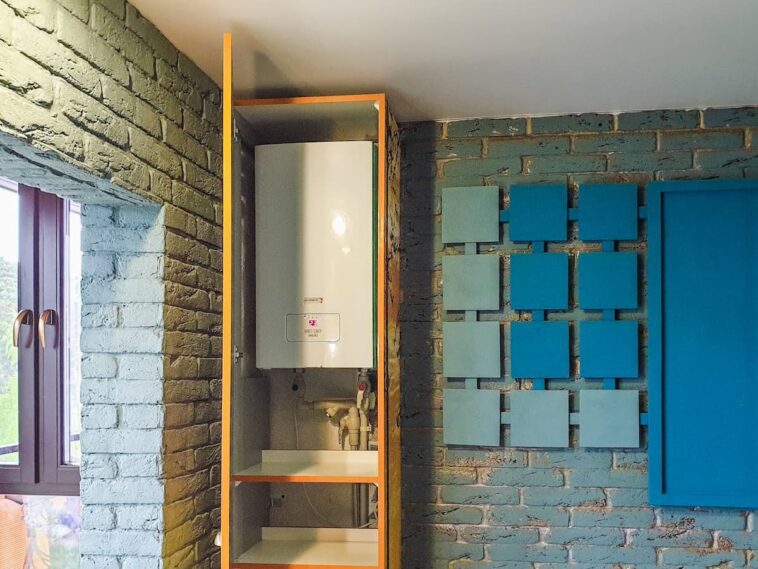Water heaters are important appliances in homes and businesses, providing a steady supply of hot water for various needs. Homeowners and property managers must understand how long these units typically last.
The Basics of Hot Water Tanks
Hot water tanks, also known as storage tank water heaters, are a common type of water heater found in households. When discussing the lifespan of water heaters, it is important to consider the longevity of these tanks. On average, hot water tanks can last anywhere from 8 to 12 years. However, their lifespan can vary depending on factors such as the quality and maintenance of the tank.
One significant factor that can affect the lifespan of hot water tanks is the occurrence of water leaks. Over time, corrosion and sediment buildup can weaken the tank’s structure, leading to leaks or even bursts of water. It is crucial to regularly maintain and inspect the tank to identify potential issues before they become major problems.
Another factor to consider is the type of water heater being used. There are different types available, including electric, gas, and hybrid heat pump water heaters. Each type has its average lifespan and may require specific maintenance procedures.
If a water heater tank experiences significant damage or frequent leaks that cannot be repaired, it will need to be replaced. It is recommended to replace a hot water tank if it is approaching its average lifespan or if there are signs indicating imminent failure.
Ultimately, the lifespan of a hot water tank depends on factors such as regular maintenance, quality of installation, usage patterns (such as high hot water demands), and adherence to manufacturer guidelines for maintenance and safety precautions.
Signs of Water Heater Failure
Water heaters can sometimes experience problems that can be concerning for homeowners. These issues can include irregular temperature fluctuations, leaks around the unit, and a reduction in hot water availability. It is important to be aware of these signs as they may indicate potential malfunctions with the water heater. To prevent such problems and extend the lifespan of your water heater, regular maintenance is crucial.
- Irregular temperature fluctuations: This can be caused by a faulty thermostat or heating elements.
- Leaks around the unit: Damaged tanks or valves are often the culprits behind these leaks.
- Reduction in hot water availability: Sediment buildup in the tank is a common cause of this issue.
Recognizing these signs allows homeowners to take the appropriate actions promptly. Regular maintenance, such as flushing out sediment buildup and checking the heating elements, can help prolong the life of your water heater. It is also important to keep an eye on your warranty coverage, as it may protect against unexpected malfunctions.
Considerations When Replacing Your Water Heater
When you’re thinking about replacing your water heater, there are a few things to consider. One important factor is the type of fuel source you want to use. You can choose between gas, electric, or solar-powered water heaters. Each option has its own pros and cons in terms of cost, availability, and environmental impact.
Another consideration is the energy efficiency rating of the water heater. Look for a unit with a high Energy Factor (EF) rating. This rating tells you how efficiently the water heater converts fuel into hot water. Choosing a water heater with a higher EF rating can help you save on energy consumption and utility bills.
The size of the water heater is also something to think about. Consider the size of your household and how much hot water you use. If you have a larger household or higher hot water demand, you may need a larger tank.
When replacing your water heater, there are other factors to keep in mind as well. Consider the life expectancy of the unit, the maintenance it requires, and the complexity of the installation. It is also a good idea to have a professional inspection to ensure safety and identify any existing issues. Regular maintenance can help prolong the lifespan of your water heater by addressing potential problems early on.
Cost and Benefits of Replacing Your Water Heater
When it comes to replacing your water heater, one important factor to consider is the cost-benefit analysis of different options. The cost of replacement can vary depending on factors like the type and size of the unit, installation fees, and any additional modifications needed. However, it is crucial to think about the long-term benefits that come with replacing an old or inefficient water heater.
By upgrading to a more efficient model, replacing your water heater can lead to significant energy savings. Newer models often have better insulation and improved heating mechanisms, resulting in lower energy consumption and reduced utility bills. Additionally, they may offer features like programmable settings or improved safety measures.
Another benefit of replacement is increased reliability and reduced maintenance costs. As water heaters age, they can become less dependable and more prone to malfunctions or leaks. By installing a new unit, homeowners can avoid costly repairs or potential damage caused by an aging system.
Checking Your Water Heater Warranty
Water heaters are an essential appliance in our homes, providing us with hot water for various purposes. It is important to check the warranty of your water heater to determine if it is still valid and what it covers. This ensures that you are prepared for any unexpected repair costs and have a clear understanding of the services and components covered under the warranty.
Validity is a crucial aspect to consider when it comes to warranties. Most warranties have an expiration date, so it is important to check if yours is still active. By doing so, you can avoid potential repair expenses that may not be covered once the warranty has expired.
Understanding the coverage of your warranty is equally important. Different warranties may include different components and services. Some warranties may cover both parts and labor costs, while others may only cover specific parts. By knowing what is covered, you can better assess the potential costs and benefits of any repairs or replacements.
When reviewing your warranty, it is essential to carefully read through the terms and conditions section. Pay attention to keywords such as ‘malfunction,’ ‘defects,’ or ‘normal wear and tear.’ These keywords will give you a better understanding of the issues that are covered under your warranty.
Regularly checking the details of your warranty is good practice. This way, you can stay informed about its coverage and any necessary actions to take in case of an issue. Being proactive in reviewing your warranty ensures that you are aware of its current status and coverage, providing you with peace of mind for any potential repairs or replacements that may be needed.

Troubleshooting Common Problems
Common problems with water heaters require a systematic approach to identify and resolve issues efficiently. Just like any other appliance, water heaters can encounter various issues over time that impact their performance and longevity.
One common problem is the lack of hot water from the heater. This can be caused by several factors, including a malfunctioning heating element or thermostat, a broken dip tube, or an issue with the gas supply for gas-powered heaters. On the other hand, if only cold water is being produced, it may indicate a problem with the pilot light or gas valve.
Another frequent issue is sediment buildup in the tank, which can reduce efficiency and impair heating capacity. Over time, minerals and debris accumulate at the bottom of the tank and create an insulating layer between the heating element and the water. Regular maintenance such as flushing the tank to remove sediment buildup is essential for optimal performance.
Unusual noises coming from the heater can also signal trouble. These noises may be caused by mineral deposits on heating elements or excessive pressure within the tank due to faulty valves. Moreover, rusty water flowing from faucets can indicate corrosion inside the tank or pipes.
Lastly, inadequate water pressure might be attributed to clogged pipes or faulty pressure regulators elsewhere in your plumbing system rather than issues specific to your water heater itself.
Tips to Extend the Lifespan of Your Water Heater
If you want to make your water heater last longer, there are a few simple steps you can take. Water heaters typically have a lifespan of 8 to 12 years, but with proper care, you can extend that. Here are some tips to help you do just that:
- Regular maintenance is key: Make sure to schedule yearly maintenance checks with a professional plumber to keep your water heater in good shape. This includes flushing the tank to remove any sediment buildup and checking for any potential issues.
- Insulating your pipes can make a big difference: By insulating your hot water pipes, you can reduce heat loss during distribution and lighten the load on your water heater.
- Adjusting the temperature settings can help: Lowering the thermostat temperature by a few degrees can save energy and reduce wear on the heating elements.
- Don’t ignore small repairs: Addressing minor issues promptly can prevent them from turning into bigger problems that may require expensive repairs or even a replacement.




